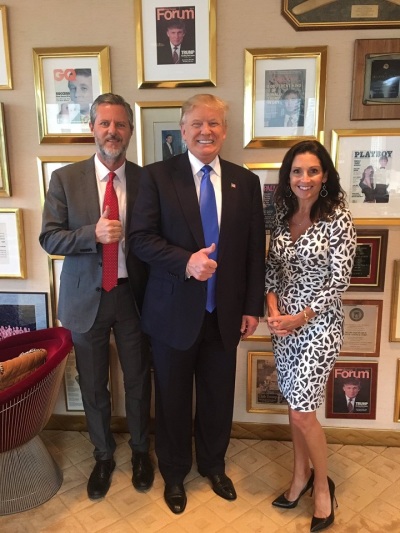John Piper Says White Evangelical Support for Trump Is Harming Minority Outreach

White evangelical support for the campaign and presidency of Donald Trump has hindered their racial reconciliation efforts, according to influential evangelical John Piper.
The chancellor of Bethlehem College & Seminary stated in a message livestreamed on YouTube Thursday evening that over the past few years, America has experienced a "constellation of sorrows" on the issue of race relations in America.
Piper, founder of DesiringGod.org, explained that he was directing his comments primarily toward white evangelicals in the Reformed theological tradition.
Piper listed six things in the "constellation of sorrows" category, which he also called six "crises." The first mention was the Michael Brown shooting in 2014 and ensuing controversy over his death.
After talking briefly about Brown and racially-charged police shootings in general, the next "crisis" given was "the emergence of Donald Trump, first as candidate and now as president."
"Donald Trump with his divisive rhetorical style and his adolescent pattern of blaming and his reckless Twitter form of leadership," said Piper.

"Add to this that a huge percentage of white evangelicals voted for him even though the character issues were screaming to be taken more seriously and given a higher priority."
Other issues straining race relations in America named by Piper included the violent protest in Charlottesville, Virginia, in August, the debate over Confederate statues and monuments, and the NFL kneeling protests combined with "our president's vulgar response."
Piper called these six crises, based on events from the past year or so, as "very sad" and noted that "underneath it is the decades-long, centuries-long, ongoing treatment of minorities with blatant or subtle, individual or structural injustice."
Piper took issue with how many of his fellow white evangelicals were responding to these crises, especially those connected to support for Trump, whom Piper has repeatedly called "morally unfit" to lead the nation.
"Many of our minority brothers and sisters feel perplexed at best and disillusioned. They are saying 'we thought we knew who you were, white evangelicals,'" said Piper. "'And now, given all these responses that have been given so different from ours, we're not sure anymore who you are.'"
"It appears to them and it appears to me that many churches, many ministries are more influenced by culture, more influenced by political ideology, more influenced by American nationalism than by the radical demands of Jesus to live as exiles, sojourners, and refugees in this alien world called America."
The focus of Piper's speech — titled "Together for Good?" — was "racial brokenness."
"Because of the sadness of these days and the sensitivity of these issues, I thought it might be helpful to address you live," stated Piper in his invitation for the speech.
"My aim ... is to express my hope for Christian racial harmony in the face of many African Americans loosening their ties with 'white evangelicalism.'"
In the video, Piper said that he was not an expert, but rather gave his remarks on the matter as a "watcher of a sad world" and a "pursuer of biblical reality," as well as a "lover" and "hoper."
The theologian gave his white evangelical listeners three pieces of advice regarding what to do in response to minorities who may feel distant from their churches over these controversies.
First, Piper exhorted white evangelicals to recognize that there is a "pilgrim culture" and an "indigenous culture" when it comes to Christianity entering a society.
These two cultures are in tension with one another, as some social norms will be compatible with the Gospel, thus allowing for an "indigenous culture," while others will be incompatible with Christian belief, thus producing the need for a "pilgrim culture."
"The problem for whites for centuries in this country is that we have felt so at home as Americans, so at home with our civil religion Christianity, that we haven't even by and large thought in terms of 'oh, I have a culture,'" explained Piper.
"And my culture is in tension with the claims of Christ on me and I've got to work at this, I've got to work at how my culture and my faith might be at odds."
Piper also told white evangelicals to not assume the worst when minorities may feel a need to distance themselves from their ministries. He then told them to "own the blood-bought, biblical call and commitment not just to racial harmony ... but let's embrace the full-blooded call and commitment to justice for all."
Piper concluded by noting that he dreams of an American Christianity where churches, some minority-led, some majority-led, have diverse congregations that are "distinctly, culturally different" yet "biblically faithful" in their "sharing of life."





















